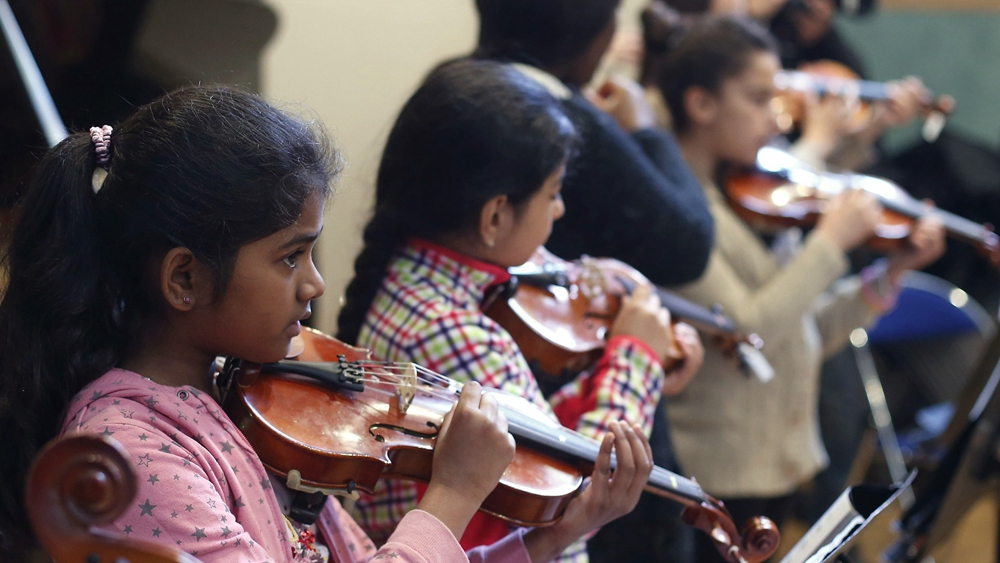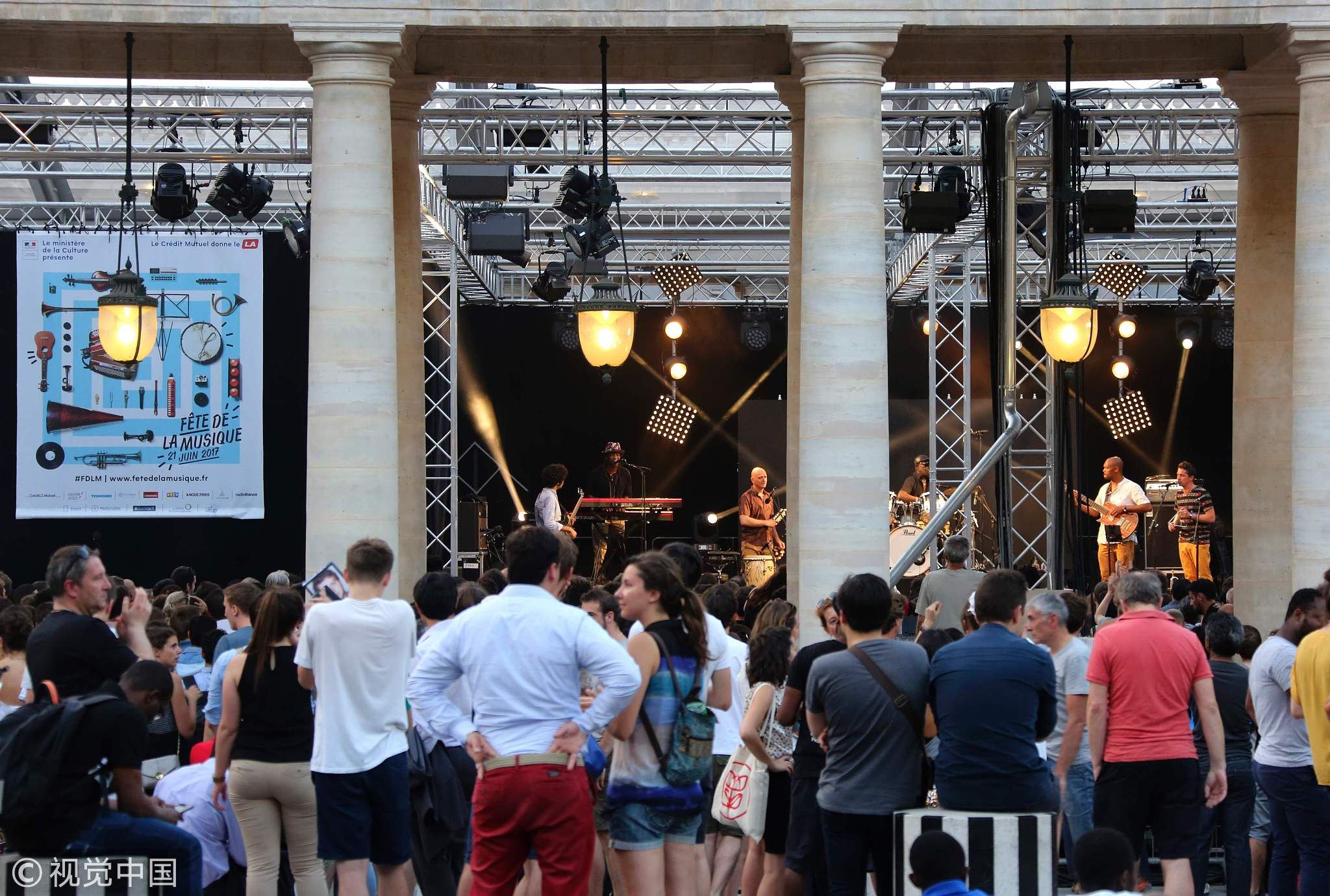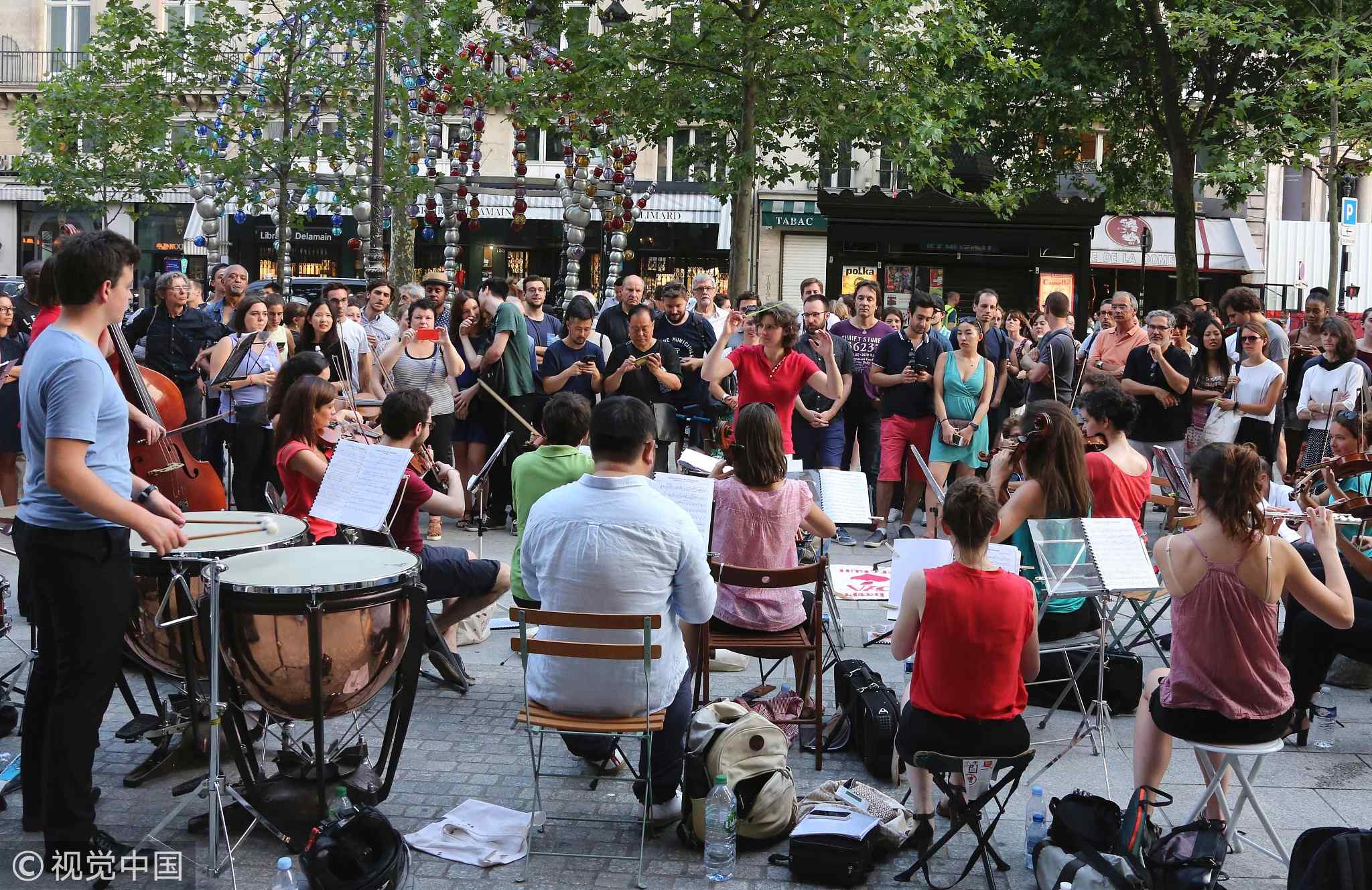
World
09:37, 22-Jun-2018
Paris orchestra gets suburban kids in tune
Elena Casas-Montanez

Every year, on June 21 France celebrates the "Fete de la Musique," which sees free concerts popping up in streets and squares across the country, often playing all night.
At the Paris Philharmonic, an orchestra with a twist is taking the stage – the Demos orchestra is made up of young people aged between seven and 16, who grew up in Paris’ deprived suburbs. They were selected by social workers to take part in the project, and many had never even seen a classical instrument before.
"I didn’t know what a clarinet was, there was a big box and a little box and I chose the big box. That was it!” 16-year-old clarinetist Aissatou told CGTN. She’s one of the project’s veterans – she’s been playing here since she was eight.

People attend a concert of Nigerian drummer Tony Allen and his band at the courtyard (Cour d'Honneur) of the Palais Royal in Paris, June 21, 2017 for the annual "Fete de la Musique." /VCG Photo
People attend a concert of Nigerian drummer Tony Allen and his band at the courtyard (Cour d'Honneur) of the Palais Royal in Paris, June 21, 2017 for the annual "Fete de la Musique." /VCG Photo
"We start with seven or eight-year-olds deliberately," explains Philharmonic’s director, Laurent Bel, adding "because they’ve got no preconceptions about music, they don’t think rap is cooler than classical or anything like that. It would be much harder to persuade them if we started with teenagers!"
The idea is to create a lifelong love of music, and to convince young people living in deprived areas that high culture can also be for them. But the project’s directors say playing in the orchestra has much wider consequences.
Five million people live in France’s multiethnic suburban housing estates – where 35 percent are under the age of 30 and are not employed or in school. Teachers and social workers worry that young people feel disengaged from the school system, and don’t believe there’s any point in studying.
"A lot of children are not integrated and are essentially condemned to fail – we have to reverse that dynamic," explains Laurent Bel. "So the main aim of the orchestra is to create confidence in themselves, help them start to like themselves. We see that when they do, their relationship with their studies changes, and so do their academic results."

An orchestra play in front of the Comedie Francaise in Paris, June 21, 2017, for the annual "Fete de la Musique." /VCG Photo
An orchestra play in front of the Comedie Francaise in Paris, June 21, 2017, for the annual "Fete de la Musique." /VCG Photo
Bel also says learning a musical instrument has verifiable effects on children’s cognitive function, and that the experience of working together in the orchestra teaches them valuable teamwork skills. But most importantly, he says, it helps connect them to the rest of French society.
"The question of the deprived suburbs is really about the meaning of life – what is it, if I feel cut off from the aspirations of society, if I don’t recognize myself in them? Over the course of time, it’s that feeling that allows extremist ideas to take root."
The French government is convinced – it’s recently doubled the project’s public subsidy, meaning 70 orchestras on this model will be created in deprived areas across France. The program lasts for three years, but many of the young participants continue with their instrument afterwards, with a number of them going on to high-level music conservatoires.
"I hope this experience will always give them a relationship with classical music," says the orchestra’s conductor, Debora Waldman, "that it will be a strong memory that they’ll want to come back to, whether as musicians or as spectators."

SITEMAP
Copyright © 2018 CGTN. Beijing ICP prepared NO.16065310-3
Copyright © 2018 CGTN. Beijing ICP prepared NO.16065310-3